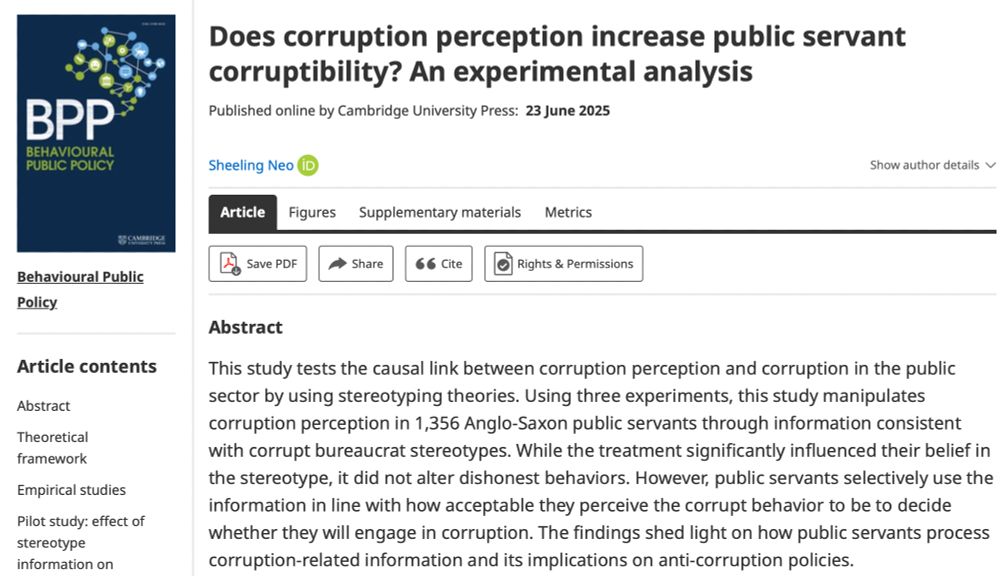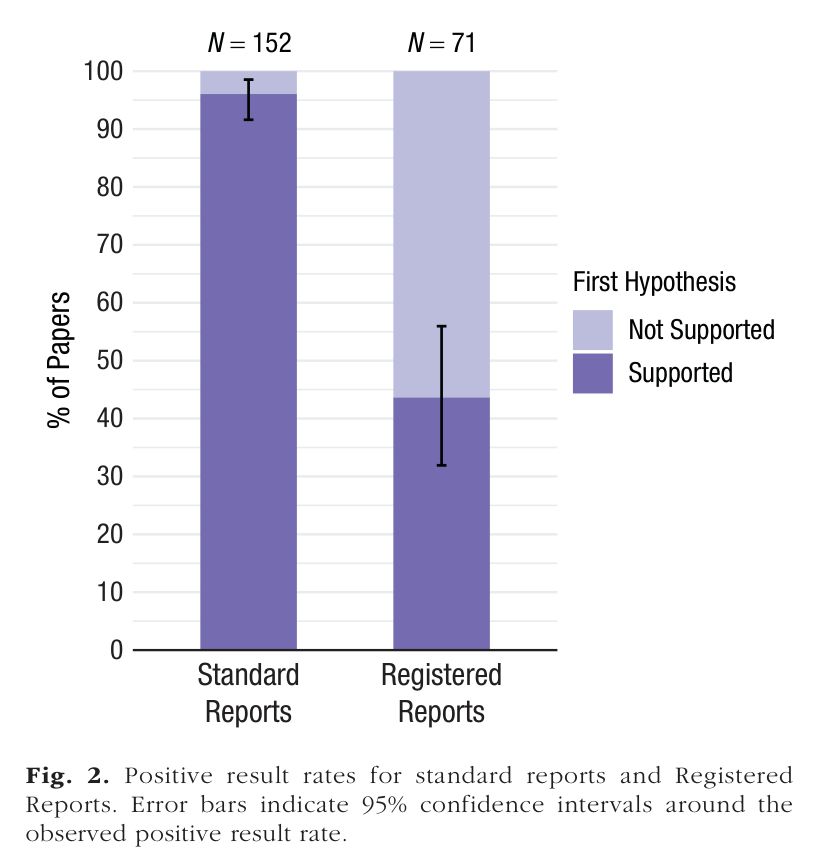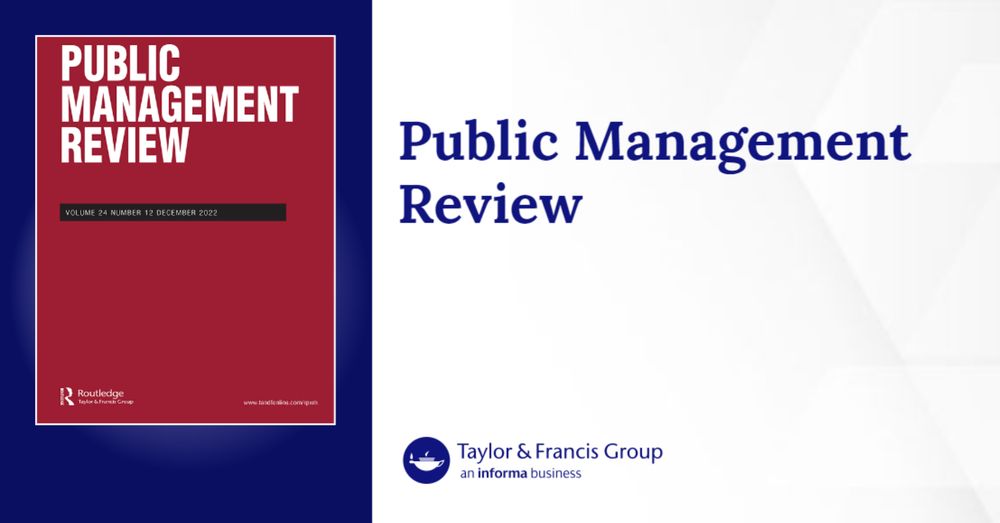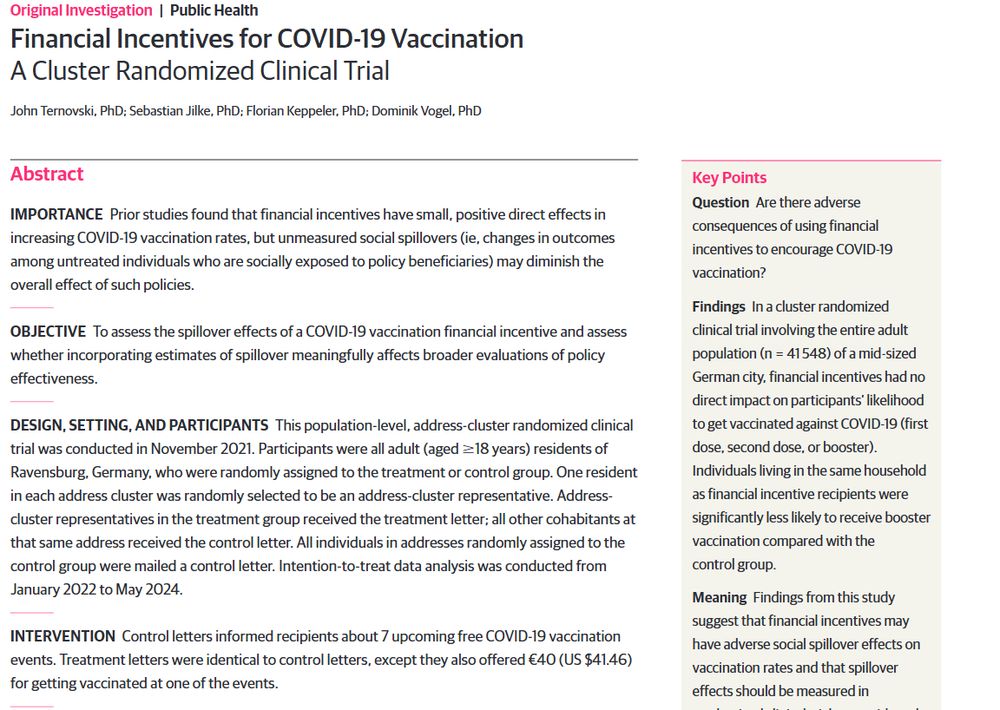Seb Jilke
@sebjilke.bsky.social
1.7K followers
510 following
83 posts
Assoc Prof at Georgetown McCourt & Co-director Better Government Lab \\ Evidence-based Policy Implementation, Behavioral Public Administration \\ Otherwise mediocre whitewater gnar 🌊🛶
http://www.sebastianjilke.net
https://www.bettergovernmentlab.org
Posts
Media
Videos
Starter Packs
Pinned
Seb Jilke
@sebjilke.bsky.social
· Nov 12
Reposted by Seb Jilke
Reposted by Seb Jilke
Reposted by Seb Jilke
Reposted by Seb Jilke
Reposted by Seb Jilke
Reposted by Seb Jilke
Dave Karpf
@davekarpf.bsky.social
· May 17
Reposted by Seb Jilke
Reposted by Seb Jilke
Reposted by Seb Jilke
Reposted by Seb Jilke
Reposted by Seb Jilke
Reposted by Seb Jilke
Reposted by Seb Jilke
Seb Jilke
@sebjilke.bsky.social
· Feb 18
Seb Jilke
@sebjilke.bsky.social
· Feb 11
Reposted by Seb Jilke
Reposted by Seb Jilke
Seb Jilke
@sebjilke.bsky.social
· Feb 7















